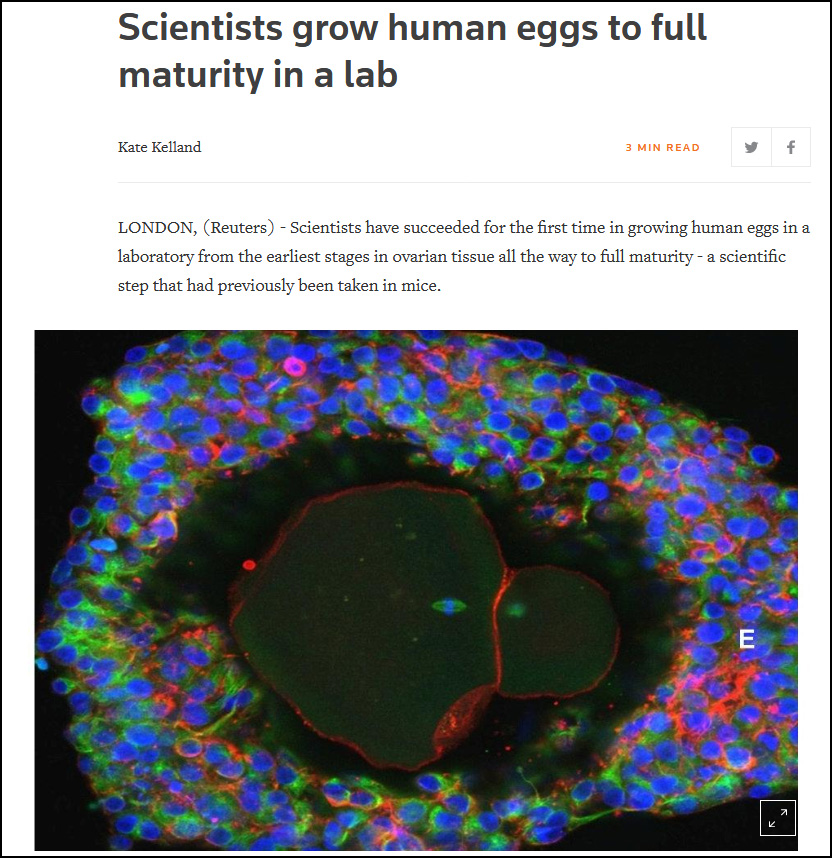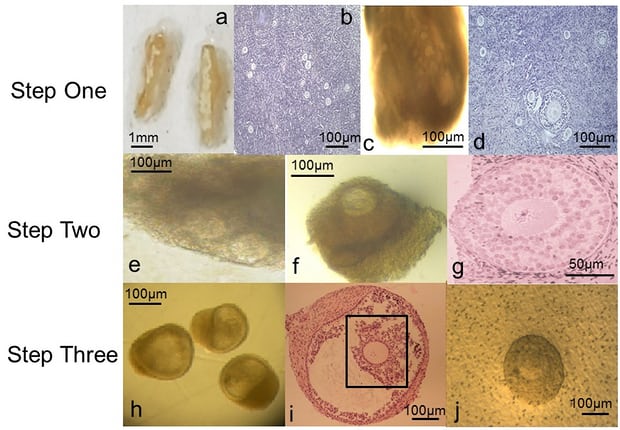For the first time in the laboratory, scientists can cultivate mature human eggs to be fertilized into key
Human egg maturation is no longer solely dependent on female ontology. A number of foreign media recently reported that British scientists first produced human eggs in the laboratory, which replicated mature eggs outside the ovary. This is seen as a major breakthrough in future fertility treatment. Eggs can mature gradually in vitro, meaning that new female infertility treatment options may emerge, bringing new hope to women who have lost fertility.
The move has attracted the attention of many scientists in the field. While praised the results, some people have questioned the results of the experiment. It is still unclear whether the eggs cultivated in these laboratories are normal and can be combined with sperm to form healthy embryos.
According to Reuters reported on February 9, a few days ago, Molecular Human Reproduction published the latest results of the University of Edinburgh reproductive biologist Evelyn Telfer and colleagues: For the first time in the laboratory, human eggs are matured from the early stages. Previously, scientists have only done such experiments with mice.
British and American scientists say the move will promote the development of regenerative medicine and new infertility treatments.

Report screenshot
As you can see from the screenshot, grow into a fully mature human egg in the laboratory.
According to reports, the study was conducted by scientists at two research hospitals in Edinburgh and scientists at the New York Center for Human Reproduction, which first developed human egg cells from the initial stage to maturity outside the human body.
"New Scientist" reported that the team obtained a small piece of ovarian tissue from 10 women through a laparotomy and obtained 310 primordial follicles, 87 of which survived at the initial stage, ie, the primordial follicles. Then cultured in nutrient medium, the research team obtained 32 mature egg cells for 21-22 days.
According to Sciencemag, in the end, only nine eggs passed the final maturity test—they were able to divide, the chromosomes were halved, and they were ready to combine with sperm during fertilization.

The development of egg cells in vitro, from Reuters
“The development of research on human egg cells in the laboratory can expand the therapeutic range of fertility care . We are now working to optimize the conditions of egg cell development and study their health,†Evelyn Terver said. “If we can prove these Eggs are normal and can form embryos, which can be widely used in future treatments."
Some independent experts who did not directly participate in this work praised the importance of this work. "New Scientist" quoted Michael Dahan of the McGill University Health Centre in Montreal, who was also not involved in the trial, as saying, "It's really exciting," it has improved. The potential for treatment."
But scientists also warn that there are still many things to do before the human eggs produced in the lab can be safely prepared and fertilized.
According to the 8th issue of the Science Journal, it takes up to 5 months to mature naturally in the body compared to the egg, and it took only 22 days in laboratory culture. It is unclear whether the eggs cultivated in these laboratories are normal and can be combined with sperm to form healthy embryos.
Mitinori Saitou, a stem cell biologist at Kyoto University in Japan, said that the research paper did not contain any genetic analysis of the final eggs to confirm their health. Saitou is concerned that the shortening of the egg maturation process in the laboratory will adversely affect it. Under normal circumstances, the oocyte undergoes meiosis to form a small polar body. But in this new experiment, the polar body is extremely large. Perhaps the eggs in this experiment did not mature properly.
In response, Telf responded that the egg matured more quickly because the inhibitory signal originally present in the body disappeared under laboratory culture conditions. Rapid maturity and large polar bodies cannot necessarily point to problems with eggs.
Ali Abbara, a senior clinical lecturer in endocrinology at Imperial College London, also said: "This early data suggests that this may be feasible in the future, but this technology is still in its early stages to determine if these eggs are Normal development, fertilization to form embryos, and ultimately healthy children, we still need to do a lot of work to ensure the safety of this technology."
Darren Griffin, a professor of genetics at the University of Kent in the United Kingdom, believes that this work is "an impressive technical achievement."
He said that if the success rate and safety rate can be improved, it will help patients receiving chemotherapy to retain fertility, improve infertility treatment techniques, and deepen the understanding of biology in early human life from a scientific perspective.
In general, chemotherapy can damage the egg and cause infertility. When girls who have not yet reached puberty have cancer, they are not able to produce mature eggs for cryopreservation, so some people choose to keep a small piece of ovarian tissue that can be reintroduced back into the body to make eggs.
Some experts said that this new technology may take several years to mature, but the result can be regarded as "significant progress." (Observer Network)
GMP Certificated Immune Globulin Injection Supplier in China
Hepatitis B Immunoglobulin,Hep B Immunoglobulin,Hepatitis B Immunoglobulin Vaccine,Hepatitis Immune Globulin
FOSHAN PHARMA CO., LTD. , https://www.fospharma.com